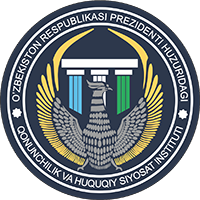On 23-24 April, the Institute of Legislation and Legal Policy hosted a capacity building workshop on strategic planning and public policy coordination. The event was organised by the Agency for Strategic Reforms (ASR), the Institute of Legislation and Legal Policy (ILLP) together with the Organisation for Economic Co-operation and Development (OECD) and supported by the Deutsche Gesellschaft für Internationale Zusammenarbeit (GIZ).
The seminar marked the beginning of the second phase of the OECD Public Governance Review in Uzbekistan project, which aims to support the implementation of the recommendations for improving the public administration system previously adopted by the Government of Uzbekistan. The focus was on developing the capacity of key ministries and agencies to plan, coordinate and implement national priorities effectively.
During the event, participants reviewed new approaches to strategic planning developed under the ASR and ILLP initiative, discussed mechanisms for inter-agency coordination, and issues related to the mainstreaming of international best practices into national practice. Particular attention was paid to the content and significance of the prepared draft presidential decree on priority measures for the introduction of a strategic planning system and its role in formalising and systematising the processes of developing state strategies.
The seminar was attended by heads and experts of sectoral ministries and agencies. During the seminar, international experts from OECD countries, including Portugal and the Czech Republic, presented successful examples (“best practices”) of building effective strategic planning systems.
The seminar approved specific directions for strengthening institutional coordination, developing analytical tools and designing the strategic planning system. The results of the event will serve as a basis for the preparation of a roadmap for the implementation of the strategic planning system, aimed at further improving public administration processes in the country, in which the role of the ASR and other participants will be further defined.


